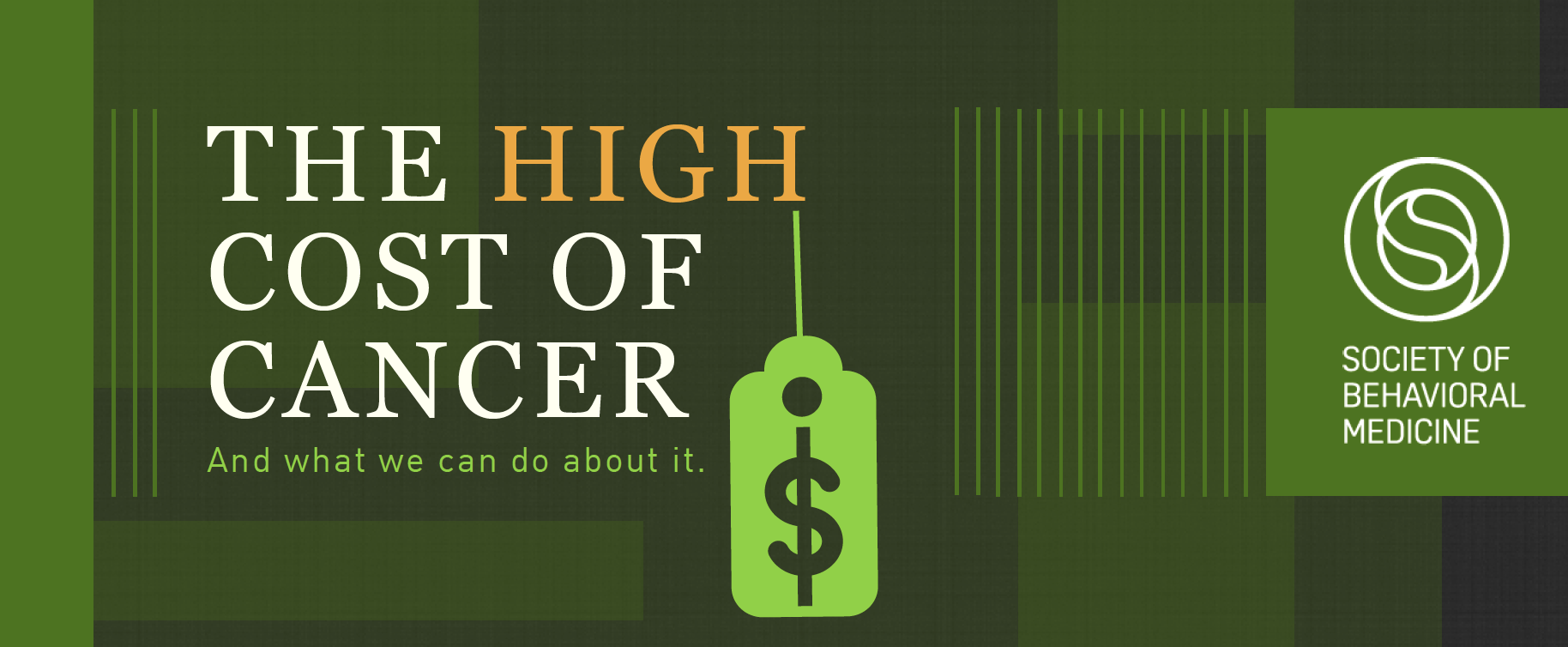
Curing cancer isn’t cheap, and patients often have to decide whether to use their finances to live now or in the future.
In a new policy brief published in the journal Society of Behavioral Medicine, University of Illinois Cancer Center researchers outlined several ways the financial burden associated with cancer treatment can be addressed. Lacking adequate health insurance or having an abundance of costs for medical care not covered by health insurance can cause financial problems and eventually lead to debt and bankruptcy. Known as financial toxicity, it can affect a patient’s quality of life and access to medical care.
Financial toxicity can have direct impacts on clinical outcomes and patient experiences, said Carl Asche, MBA, MSc, PhD, University of Illinois College of Medicine at Peoria and lead author on the paper.
“Families often make substantial financial and other behavioral adjustments to economize following a cancer diagnosis,” Asche said. “These behaviors often include patients not taking their medications, opting out of more beneficial therapies because they’re too expensive, cutting back on necessities, depletion of retirement savings, and increased credit card debt.”
Cancer survivors who experience higher financial toxicity report greater levels of pain, have higher rates of depression, report greater levels of anxiety, and poorer overall quality of life, Asche said. The survivors also say they have more symptoms and are more likely to reduce their level of employment or stop working altogether.
There are several ways policymakers can assist cancer patients in reducing their financial toxicity. The first, Asche said, is to create a Medicare cap for cancer treatment costs regardless of where the treatments occur. Medicare currently has no out-of-pocket maximum for cancer treatment. Annual out-of-pocket expenditures for a new cancer diagnoses can range from $2,116 to $8,115, said the Agency for Health Care Research and Quality (AHRQ). Following actuarial analysis, Medicare should implement a catastrophic coverage threshold for all Medicare beneficiaries, setting a cap on annual out-of-pocket expenses.
Transitioning to a clinical pathway payment program is another avenue to pursue, Asche said. Using the End Stage Renal Disease (ESRD) Prospective Payment System as a model can show how payments for drugs, laboratory services and support services can be packaged and applied to various other disease states. Patients with pre-existing conditions should also be protected because they may have to utilize other insurance plans due to a change in their employment status.
Consideration should also be given to limiting non-Affordable Care Act (ACA) compliant short-term health plans, said Susan Hong, MD, MPH, director of survivorship at the UI Cancer Center and senior author. A new legislative rule extending and increasing access to these plans from three to 12 months are not required to meet all ACA requirements; however, including the essential health benefits has the potential to discriminate against cancer patients, Hong said.
“Their structure requires higher cost-sharing and lower coverage, which is not suitable to this population,” she said.
Expanding employer support of cancer treatment is the final recommendation, specifically through the endorsement of paid leave through the Family and Medical Leave Act (FMLA). Cancer patients would benefit significantly from the 12 weeks of financial support, providing both short- and potentially long-term protection from some aspects of financial toxicity, Hong said.
Co-authors on the paper included UI Cancer Center members Marian Fitzgibbon, PhD, Karriem Watson, DHSc, MS, MPH, and Robert Winn, MD; Meredith Greer Baumgartner, MPH, University of Illinois at Peoria; Joanna Buscemi, PhD, DePaul University; Melissa Simon, MD, Northwestern University; Candace Henley, The Blue Hat Foundation, Inc. and member of the UI Cancer Center’s Patient Brigade; and Joanne Glenn, RN, MBA, Women on Top of Their Game, Inc. Funding was provided by NIH/NCI Grant U54CA202995 and Patient Centered Outcomes Research Institute (PCORI) Grant No. 10629-U01.
